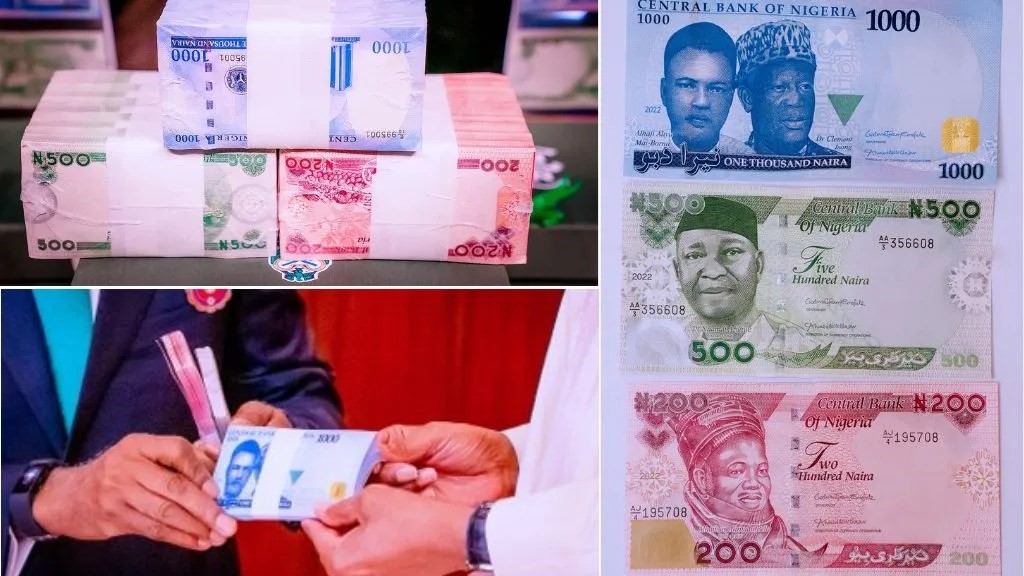THE NEW NAIRA – A WELCOME CHANGE?
The new Naira note is a big step towards ensuring a sustainable economy. The new note, was introduced with great fanfare but was accompanied with a lot of scrutiny and skepticism.
The new N200, N500, and N1,000 notes, the three largest denominations of Nigerian money, were introduced by President Muhammadu Buhari.
The issuance of new notes, according to CBN Governor Godwin Emefiele, was a deliberate move by the government to combat corruption and counterfeiting. Additionally, he said that the new notes would go into circulation from December 15, 2022, and that the existing notes would cease to exist on January 31, 2023.
WHAT DO THEY HOPE TO ACHIEVE?
Upon the announcement of the redesign, many Nigerians even till this very moment are skeptical as to the reason for this sudden change.
According to the CBN governor, Significant hoarding of banknotes by the general population is one of major issues; more than 85% of the cash in use is not stored in commercial banks' vaults as he stated.
Also, the CBN is confident that when access to the significant amount of money utilized as a source of finances outside the banking system for ransom payments starts to dry up, occurrences of terrorism, abduction and all types of violence will be reduced especially with the 2023 General Elections around the corner.
It is safe to say that the intention is genuine but the resultant effects of such policy on such short notice leaves much to be desired.
Since the unveiling of the new notes, there has been a huge outburst as to the appearance of the new notes. Some people have stated that the new notes are “glorified” shuffle of the colour scheme of the old ones, as there is no notable difference from the old one when compared.
Due to the short time allocated to change the old notes, there has been a domino of unpleasant outcomes.
While most people have not yet received their new Naira, many are already complaining about how difficult it is to withdraw money from ATMs in most parts of the country, especially in the eastern parts.
People who work away from the cities and towns for long periods of time cannot withdraw money or make purchases online or on mobile phones because they do not have enough cash with them.
Because of the recent conundrum, banks and financial institutions across the country have experienced significant decline in network stability making it difficult for Nigerians to utilize other means of payment or even to carry out basic transactions.
Through first-hand experience, it has been observed there are long queues at some ATMs and that withdrawals are limited to N20,000 per day for each card. To worsen matters, people have been seen fighting on queues and well-meaning Nigerians have been caught in the crossfire.
The fact that there were long queues at banks since the introduction of the new notes indicates that a greater part of the Nigerian population do not have access to their money.
People who usually resort to the use of POS machines for withdrawal of cash or payment for goods and services now have to pay exhorbitant charges just to acquire this new money. imagine withdrawing N10,000 and paying a charge of N2000 for the withdrawal. Outrageous!
Others say that there are counterfeit notes being passed as real ones as there is no distinct way of knowing the real from the fake, sighting numerous design flaws such as the lack of durability of the new money, the easy removal of colour from the notes especially when it comes in contact with water, all these in direct opposition to the old notes especially the polymer based notes. Others have complained that there is no way to exchange counterfeit Naira notes after they are used in transactions.
People who are still in possession of old notes are being denied services because no one wants collect old money which has left people stranded.
Recently, the CBN governor announced a shift in the deadline for exchange of old notes to February 10. This has eased the tension a little as he also stated that people can still obtain the old notes from the bank even after this deadline. This move came after the house of representatives invited the CBN governor and even threatened to arrest him if the deadline was not extended.
The only good side of this scarcity and turmoil is that it has driven the economy towards the cashless policy where people have to resort to other means to pay for goods services. but this also on one end is being marred by instability of the banking platforms used to carry out these transactions.
One way or another, the new naira note has come to stay!









